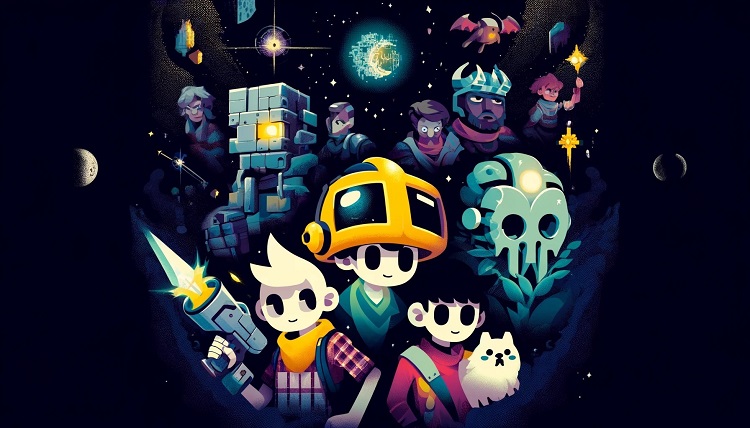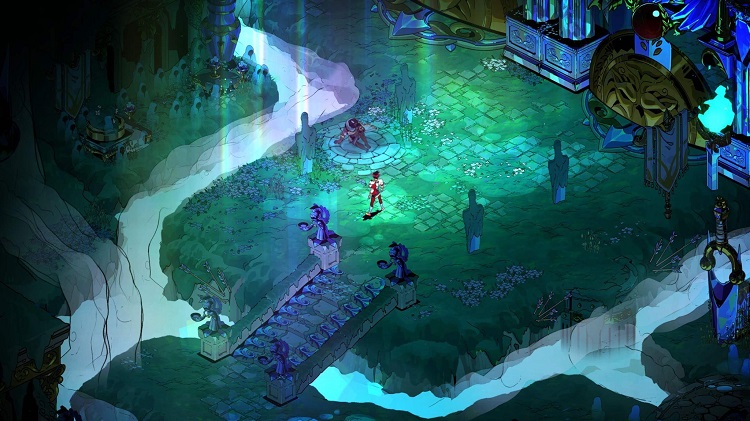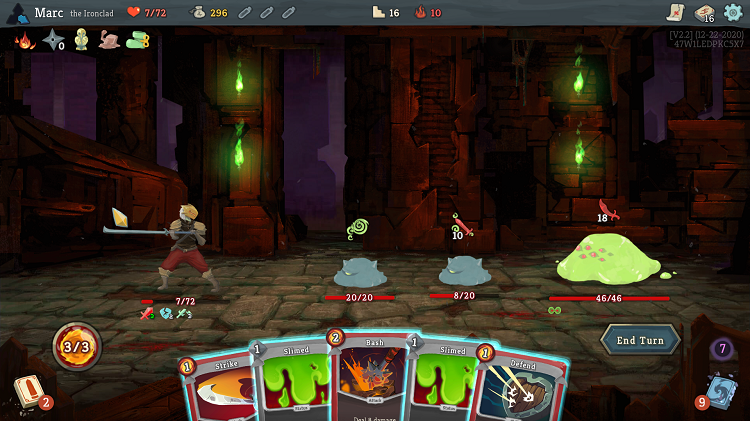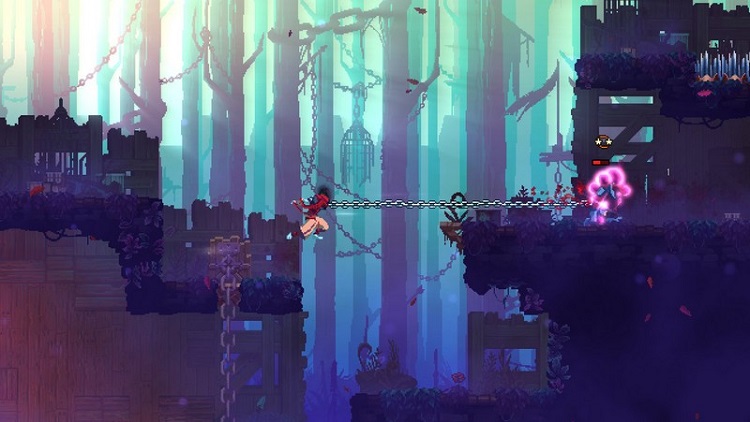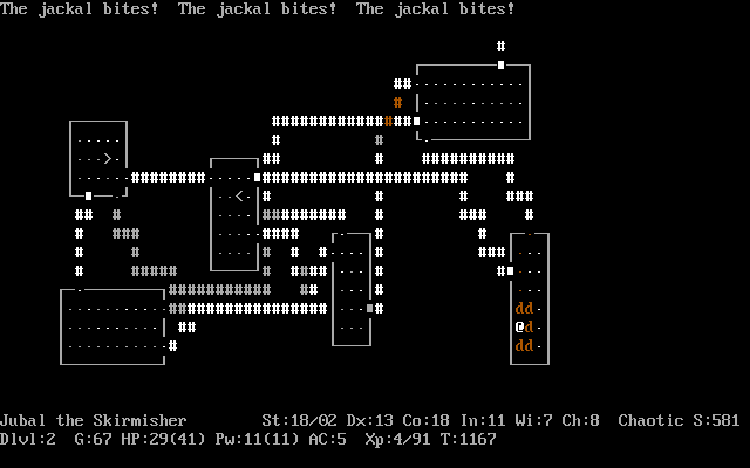Best Roguelike Games of all time: TOP 5 Upcoming & Existing titles
The roguelike genre has always had a unique appeal, thanks to its blend of challenging gameplay and high replayability. It originated in the 1980s with games like Rogue, which introduced procedurally generated dungeons, permadeath, and turn-based gameplay.
Over time, roguelikes have evolved to incorporate more modern mechanics and visuals, while still maintaining their core principles of challenging gameplay and rewarding progression. So, let’s explore some of the best roguelike games, both upcoming and existing, that embody the genre’s enduring appeal.
Table of Contents
Best Existing Roguelike Games
Hades (PS5, PC, Switch)
Hades is one of the most critically acclaimed roguelike games in recent years. Developed by Supergiant Games, it follows the story of Zagreus, the son of Hades, as he attempts to escape the underworld.
The game combines procedurally generated dungeons, fast-paced combat, and rich storytelling. Players are challenged to choose their weapons and Boons (special abilities granted by the gods of Olympus) wisely to progress through the game’s various levels.
Advanced Tips for Beginners
- Experiment with different weapon and Boon combinations to find the best build for your playstyle.
- Focus on clearing enemies quickly to build up your God Gauge, which enables powerful special attacks.
- Don’t overlook the importance of dashing to avoid enemy attacks and create distance during combat.
Slay the Spire (PC, Switch, PS4)
A pioneer in the deck-building roguelike subgenre, Slay the Spire has garnered a loyal fanbase with its unique mix of card-based strategy and roguelike elements. Players progress through various acts, facing enemies and bosses by building decks that can adapt to different challenges.
Each playthrough offers new cards and relics to unlock, ensuring no two runs are the same.
Advanced Tips for Deck-Building:
- Prioritize building a deck with a clear strategy. Focus on cards that work well together rather than just powerful cards.
- Don’t be afraid to thin your deck. Removing weaker cards can increase your chances of drawing the ones you need.
- Relics are game-changers. Choose them wisely to align with your deck’s strengths and weaknesses.
Dead Cells (PC, PS5, Xbox, Switch)
Dead Cells is a dynamic roguelike that combines the best aspects of platformers with roguelike elements. You control the “Prisoner,” a reanimated corpse fighting its way through procedurally generated levels teeming with enemies.
The game’s frenetic combat, which includes dodging, parrying, and unleashing powerful weapon combos, is one of its defining features. Additionally, players can discover blueprints to unlock new weapons, skills, and abilities for future runs.
Advanced Tips for Character Builds:
- Experiment with different weapons to find a setup that matches your playstyle. Don’t be afraid to try out new combinations.
- Invest in skills that complement your weapon choice. For instance, turrets can help you keep distance from enemies while dealing consistent damage.
- Always stay mobile. Use the dodge roll frequently to avoid attacks and maintain an advantage in combat.
Best Upcoming Roguelike Games
Ocean Keeper (PC, Android, iOS, Xbox, Switch)
Ocean Keeper, developed by RetroStyle Games, is set to make waves in the roguelike genre and become the best roguelikes of all time. The game invites players into an immersive underwater world, where they pilot a giant robotic spider across the ocean floor. The aim is to navigate treacherous depths, fight off dangerous sea creatures, and uncover an ancient artifact.
As a roguelike, Ocean Keeper offers procedurally generated environments that change with each dive, ensuring that every playthrough feels fresh and unpredictable.
Details about RetroStyle Games:
- Based in Kyiv, RetroStyle Games is an indie development studio known for creating titles like Last Pirate: Survival Island and Zombie Run. The studio specializes in 2D and 3D game artwork and has a track record of developing engaging, player-driven games.
- Ocean Keeper is a collaborative effort involving up to 10 developers and designers, each bringing their expertise to the project. The team is also fostering a community around the game, engaging with players on Discord to refine the game through direct feedback.
Key Gameplay Elements to Look Forward To
Procedurally Generated Maps: Each playthrough will present a new layout of the ocean floor, ensuring that players must adapt their strategies to survive each unique environment.
Resource Management and Upgrades: Players will scavenge for resources to upgrade their robotic spider, enhancing its capabilities to withstand the perils of the ocean.
Combat and Exploration: The game emphasizes intense combat with fearsome sea monsters, requiring players to carefully manage their weapons and abilities for each encounter.
Community Engagement: The developers invite players to join their official Discord channel to engage in discussions, share strategies, and contribute to the ongoing development of Ocean Keeper.
Most Popular Roguelike
Over time, the roguelike genre has produced numerous popular titles that have captured the hearts of players worldwide. One of the most iconic is Hades. Its unique combination of tight, responsive combat, a rich narrative, and a Greek mythology theme make it stand out.
Players appreciate its blend of roguelike mechanics with the progression of roguelites, offering meaningful upgrades that persist across runs. Its engaging characters and lore add layers of depth that keep players invested in Zagreus’s journey out of the underworld.
Another notable example is The Binding of Isaac, which took the roguelike formula and infused it with a twin-stick shooter gameplay style.
With procedurally generated levels, a vast array of items and power-ups, and a compellingly dark theme, the game redefined the genre and remains a favorite among roguelike enthusiasts.
These games, along with others like Slay the Spire, have expanded the roguelike genre’s reach, making it more accessible and appealing to a broader audience. Each title brings its own spin to the traditional roguelike format, offering varied mechanics and challenges that cater to different playstyles.
Roguelike vs. Roguelite
The terms roguelike and roguelite are often used interchangeably, but they represent different subgenres within the roguelike family. The primary distinction lies in the progression mechanics and how they impact gameplay:
- Roguelike: These games adhere closely to the original Rogue experience, emphasizing permadeath, grid-based movement, and turn-based gameplay. They typically offer little to no persistent progression between runs, meaning each playthrough starts with a clean slate.
Players rely heavily on their skills and strategies rather than permanent upgrades. Classic roguelikes include games like Nethack and Dungeon Crawl Stone Soup.
- Roguelite: These games incorporate roguelike elements but with modern twists. They usually feature some form of persistent progression, allowing players to unlock upgrades, abilities, or new characters that persist across multiple runs. This progression system helps make the game more accessible to players who may find traditional roguelikes too punishing.
Popular roguelites like Hades and Dead Cells are excellent examples, offering players a sense of long-term achievement while retaining the challenging, randomized gameplay of roguelikes.
Impact on Gameplay
In roguelikes, the emphasis on permadeath and procedural generation creates a high-stakes environment where players must carefully plan each move. The lack of persistent upgrades requires skill, adaptability, and a strong understanding of the game’s mechanics.
Roguelites provide a more forgiving experience, allowing players to improve their chances with each successive run. This style appeals to a broader audience, blending challenging gameplay with a sense of progression that rewards persistence and strategy.
Both subgenres offer unique gaming experiences, but the difference in progression and difficulty levels means that players can choose the type that best suits their preferences.
Animation in Roguelikes
In fast-paced roguelikes like Dead Cells, fluid animations make combat and movement feel responsive. Smooth transitions between attacking, dodging, and moving help players understand their actions’ effects quickly, enhancing gameplay fluidity.
Animation is essential in telegraphing enemy attacks, especially in roguelike games where combat can be brutal. Clear enemy animations help players anticipate attacks and react accordingly, which is crucial given the high-stakes, permadeath nature of roguelikes.
Since roguelike levels are procedurally generated, animations need to adapt to various environments. This means characters might have animations for different terrain types or obstacles, ensuring they move naturally in varied procedurally generated environments.
In roguelikes, animations often change as players upgrade their characters or acquire new equipment. For instance, weapon upgrades in Dead Cells are reflected through new attack animations, showing visual progression.
In order to make animations for your roguelike game, it is better to use the services of animation studios https://retrostylegames.com/outsourcing/animation/
Roguelike games continue to thrive due to their challenging gameplay, strategic depth, and endless replayability. From existing classics like Hades to upcoming titles like Ocean Keeper, the genre’s appeal is vast and varied. Whether you prefer the hardcore challenge of traditional roguelikes or the accessible progression of roguelites, there’s a roguelike adventure waiting for you.

